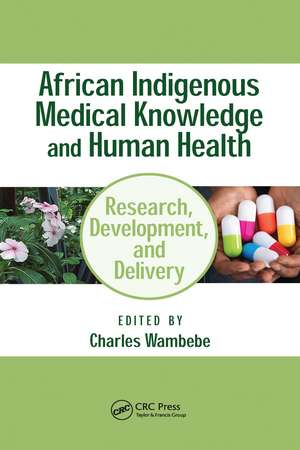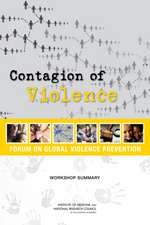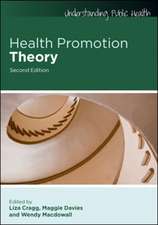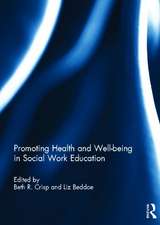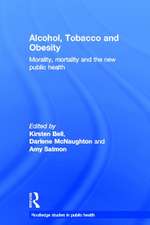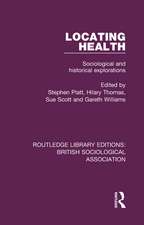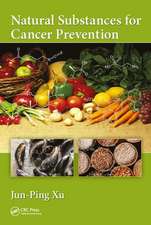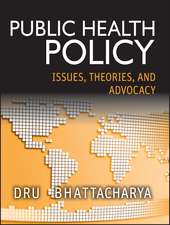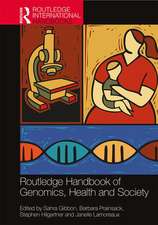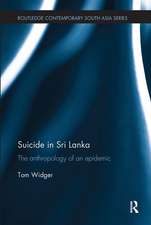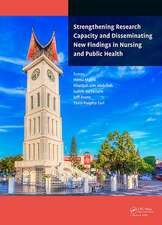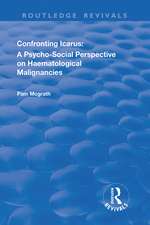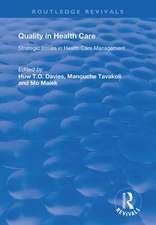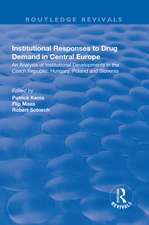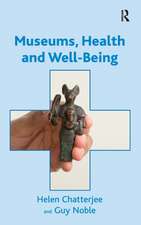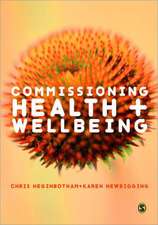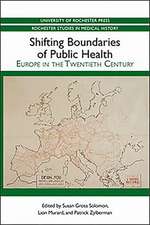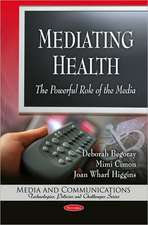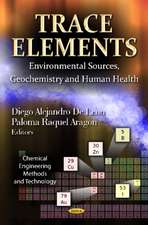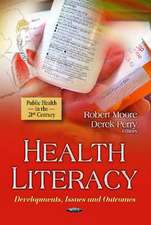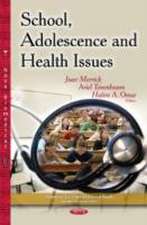African Indigenous Medical Knowledge and Human Health
Editat de Charles Wambebeen Limba Engleză Paperback – 30 iun 2021
| Toate formatele și edițiile | Preț | Express |
|---|---|---|
| Paperback (1) | 431.73 lei 6-8 săpt. | |
| CRC Press – 30 iun 2021 | 431.73 lei 6-8 săpt. | |
| Hardback (1) | 932.83 lei 6-8 săpt. | |
| CRC Press – feb 2018 | 932.83 lei 6-8 săpt. |
Preț: 431.73 lei
Nou
Puncte Express: 648
Preț estimativ în valută:
82.62€ • 86.15$ • 68.67£
82.62€ • 86.15$ • 68.67£
Carte tipărită la comandă
Livrare economică 21 martie-04 aprilie
Preluare comenzi: 021 569.72.76
Specificații
ISBN-13: 9781032095806
ISBN-10: 1032095806
Pagini: 246
Ilustrații: 6 Illustrations, color; 19 Illustrations, black and white
Dimensiuni: 156 x 234 x 13 mm
Greutate: 0.35 kg
Ediția:1
Editura: CRC Press
Colecția CRC Press
ISBN-10: 1032095806
Pagini: 246
Ilustrații: 6 Illustrations, color; 19 Illustrations, black and white
Dimensiuni: 156 x 234 x 13 mm
Greutate: 0.35 kg
Ediția:1
Editura: CRC Press
Colecția CRC Press
Public țintă
Academic and Professional ReferenceCuprins
Overview. Overview of Traditional Medicine Situation in Africa. Legal Framework and Intellectual Property Rights. Property Rights and Traditional Medical Knowledge in Africa: Issues and Development. African Medicinal Plants and Traditional Medical Knowledge: Access and Benefit Sharing in the Context of Research and Development. Validation and Standardization. Using Appropriate Methodology and Technology for Research and Development of African Traditional Medicines. Innovative Nutritional Approach to Attenuate the Progression of HIV to AIDS among People Living with HIV (PLWH): A Study based in Abuja, Nigeria. Research adn Development of Niprisan for the Management of Sickle Cell Disorder. Neem. The Story of Centella asiatica in Madagascar. Development of New Products Based on African Indigenous Medical Knowledge in South Africa. Future Prospects of African Biodiversity and Traditional Medicine. Regulatory Issues Regarding Development and Commercialization of Products Derived from AIMK. African Traditional Medicine: The Way Forward.
Notă biografică
Professor Charles Wambebe obtained his PhD in Neuropharmacology from Ahmadu Bello University in 1979. He served briefly at Georgetown University Medical Center as Visiting Professor of Pharmacology and worked with the World Health Organization. He was consultant in Traditional Medicine to UNDP, UNIDO, African Union, Economic Community for Africa and African Development Bank. Professor Wambebe was the Pioneer Pro-Chancellor and Chairman of Council, Bingham University. His initial research focus was on the physiological roles of dopamine in the brain. He also published research articles on the neuropharmacological effects of plant extracts. Upon his appointment as Pioneer Director-General/CEO of the National Institute for Pharmaceutical Research and Development (NIPRD), Abuja, Nigeria, he switched his research interest to development of phytomedicines based on African Indigenous Medical Knowledge (AIMK). During his tenure at NIPRD, he initiated and directed the research and development of Niprisan; a standardized phytomedicine for the prophylactic management of sickle cell disorder. It was a ground breaking research that earned Professor Wambebe The World Academy of Science Award in Medical Sciences (TWAS). Niprisan is generally regarded as clinically safe and effective. In recognition of his academic achievements, Professor Wambebe was elected Fellow of TWAS, African Academy of Sciences , Nigerian Academy of Science, etc. Professor Wambebe has published over 150 peer reviewed articles in international journals and contributed chapters to books. His current research interests involve development of phytomedicines from AIMK using African Food Plants. Professor Wambebe is currently serving as Professor Extra-Ordinary (Pharmacology) at Tswane University of Technology, Pretoria and Witwatersrand University, Johannesburg, South Africa.
Descriere
African Indigenous Medical Knowledge and Human Health serves as a one-step reference for pharmacognosists, ethnobiologists, botanists, phytochemists, pharmacologists and medical scientists interested in the development of medical interventions based on the rich African biodiversity and AIMK.
